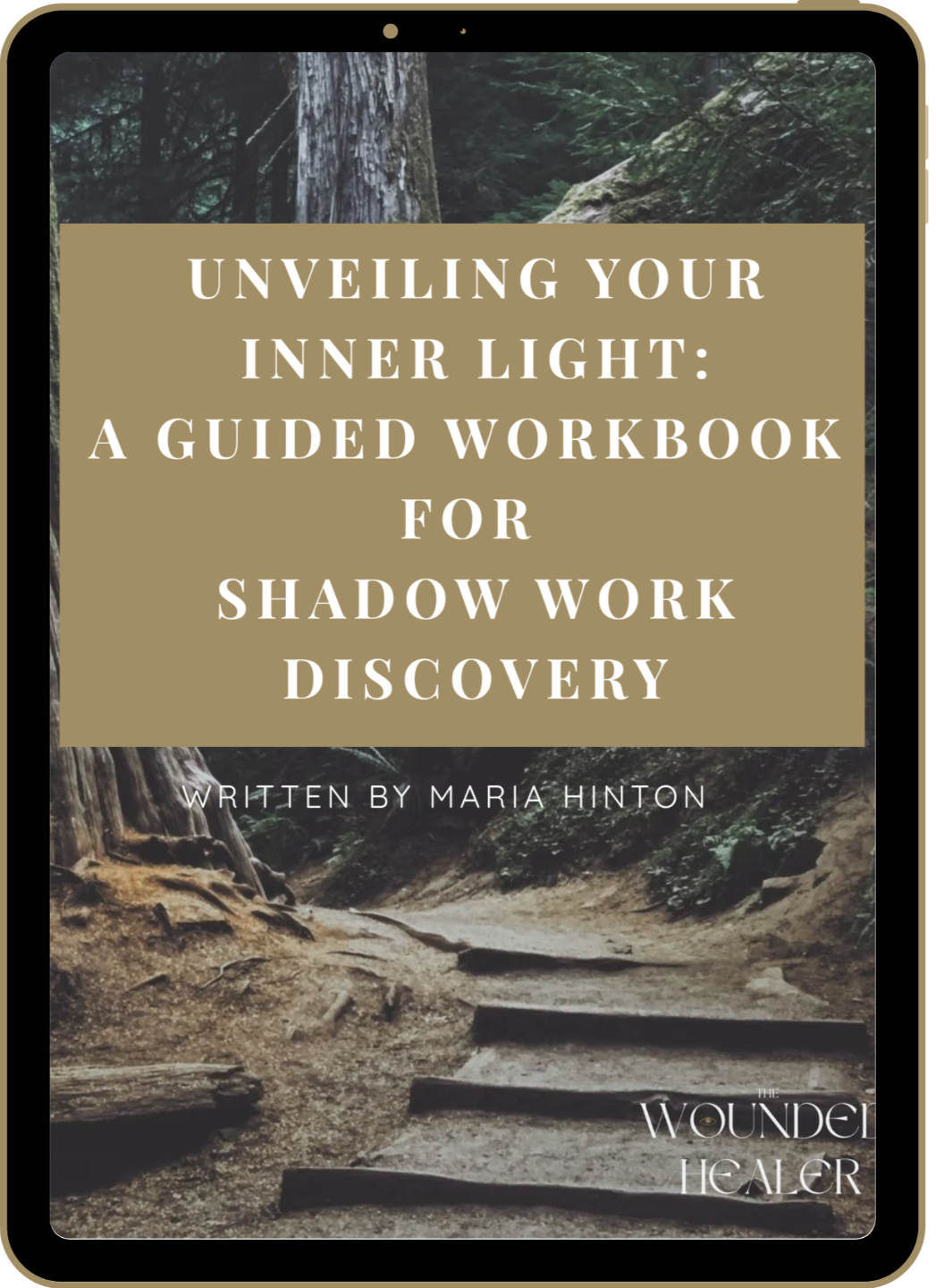How to Heal the Mother Wound in Adult Women: A Compassionate Guide to Recovery
May 27, 2025
Understanding the Mother Wound: The First Step to Healing
The journey of healing the mother wound begins with understanding what it truly is. The mother wound represents the pain and unresolved trauma that stems from the relationship with your mother or maternal figure. For adult women, this wound often manifests as patterns of self-doubt, people-pleasing, difficulty setting boundaries, and challenges in relationships.
As women, we inherit not only our mother's genetic makeup but also her unresolved trauma, limiting beliefs, and emotional patterns. The mother wound isn't about blaming our mothers—it's about recognizing how maternal relationships shape our sense of self and worthiness as women.
Many adult women struggle with this wound silently, not realizing that their emotional challenges, relationship patterns, and self-perception issues stem from this unhealed trauma. Recognizing the presence of the mother wound is the crucial first step toward healing.
Common Signs of an Unhealed Mother Wound in Adult Women
Before diving into healing techniques, it's important to recognize how the mother wound might be manifesting in your life. Common signs include:
- Chronic people-pleasing and difficulty saying no
- Perfectionism and fear of making mistakes
- Feeling responsible for others' emotions
- Difficulty trusting your own intuition and decisions
- Challenging relationships with other women
- Self-criticism that echoes your mother's voice
- Feeling never "good enough" despite achievements
- Difficulty expressing needs and setting boundaries
- Repeating maternal patterns in your own parenting
- Persistent feelings of emptiness or unworthiness
If these patterns resonate with you, know that you're not alone. The mother wound affects countless women, and healing is possible through conscious awareness and dedicated inner work.
The Healing Journey: Practical Steps for Adult Women
1. Acknowledge the Wound Without Shame
Healing begins with acknowledgment. Many women feel guilty for examining their relationship with their mother critically. Remember that acknowledging the wound doesn't mean rejecting your mother or being ungrateful—it means honouring your experience and pain.
Create a safe space for yourself to explore these feelings, perhaps through journaling or with a trusted therapist who understands maternal trauma. Write down specific memories, patterns, and feelings that emerge when you think about your relationship with your mother.
2. Separate Your Mother's Story from Your Own
Understanding your mother's own trauma and limitations can be illuminating. Many of our mothers were doing the best they could with the tools and awareness they had. However, understanding doesn't mean excusing harmful behaviour or continuing to accept treatment that diminishes you.
Exercise: Create a timeline of your mother's life, noting significant challenges, traumas, and limitations she faced. Then create your own timeline, identifying where her unresolved issues may have impacted your development. This visual separation helps distinguish her story from yours.
3. Reclaim Projected Aspects of Self
Often, mothers unconsciously project disowned aspects of themselves onto their daughters. These projections can become internalized, creating confusion about your authentic identity.
Exercise: Identify qualities or desires your mother seemed to reject in herself or criticize in you. Ask yourself: "Is this truly me, or am I carrying my mother's projection?" Make a conscious choice about which qualities you want to reclaim as your own.
4. Practice Self-Mothering and Compassion
Learning to mother yourself is a powerful healing practice. This means developing the ability to comfort, validate, and care for yourself in ways your mother may not have been able to.
Self-Mothering Practice: When facing challenges or emotional pain, place a hand on your heart and speak to yourself with the kindness and wisdom of the ideal mother. What would a perfectly loving, wise mother say to you right now? Offer yourself that compassion and guidance.
5. Work with Somatic Healing Techniques
The mother wound isn't just psychological—it lives in the body. Somatic practices help release stored trauma from your nervous system.
Somatic Release Exercise: Sit quietly and bring awareness to where you feel tension when thinking about your mother. Place your hand there, breathe deeply, and visualize releasing that tension with each exhale. Allow any emotions to surface without judgment.
6. Establish Healthy Boundaries
Many women with mother wounds struggle with boundaries. Learning to set and maintain healthy boundaries is essential for healing.
Boundary Practice: Start with small boundaries that feel manageable. Practice phrases like "I need some time to think about that" or "That doesn't work for me." Notice the discomfort that arises and breathe through it, reminding yourself that your needs matter.
7. Connect with Feminine Wisdom and Community
Healing the mother wound often involves reconnecting with feminine wisdom and finding supportive female relationships.
Community Healing: Consider joining a women's circle, finding a mentor, or creating relationships with older women who embody the maternal wisdom you seek. These connections can provide the maternal guidance and mirroring that may have been missing.
8. Engage in Inner Child Work
Much of the mother wound affects the inner child who still longs for maternal love and approval.
Inner Child Dialogue: Visualize yourself at different ages when maternal wounding occurred. What does that younger version of you need to hear? What comfort or reassurance was missing? Provide it now through visualization, journaling, or guided meditation.
9. Release the Need for Your Mother's Approval
Many adult women remain trapped in patterns of seeking maternal approval. Releasing this need is liberating but challenging.
Release Ritual: Write a letter expressing everything you've needed from your mother. Read it aloud, then symbolically release it—perhaps by safely burning it or tying it to a helium balloon. This represents releasing the expectation that these needs will be met by her.
10. Rewrite Your Feminine Narrative
The final stage of healing involves consciously creating a new relationship with your feminine identity and power.
Narrative Reframing: Write your "feminine manifesto"—a declaration of how you choose to embody womanhood on your own terms, free from maternal conditioning. Include the values, strengths, and expressions of femininity that feel authentic to you.
The Ongoing Nature of Mother Wound Healing
Healing the mother wound isn't a linear process with a definitive endpoint. It's a spiral journey that may revisit certain themes at deeper levels throughout your life. Be patient with yourself and celebrate small victories along the way.
Many women report significant shifts after dedicated healing work, including:
- Greater self-trust and confidence in decisions
- Improved relationships with other women
- Reduced people-pleasing and stronger boundaries
- More authentic self-expression
- A sense of inner peace and self-acceptance
- Breaking generational patterns in their own parenting
- Deeper connection to feminine wisdom and intuition
Remember that healing doesn't require your mother's participation or validation. This journey is about reclaiming your authentic self and creating a new relationship with the feminine—both within yourself and in the world.
When to Seek Professional Support
While self-guided healing practices are valuable, working with a trauma-informed therapist who specializes in maternal relationships can provide crucial support. Consider professional help if you:
- Feel overwhelmed by emotions when exploring the mother wound
- Notice that mother wound patterns are significantly impacting your relationships or daily functioning
- Have experienced severe maternal abuse or neglect
- Find yourself repeating harmful maternal patterns with your own children
- Feel stuck in your healing journey despite self-guided efforts
Embracing Your Authentic Feminine Power
As you heal the mother wound, you'll discover that beneath the pain lies an opportunity to define womanhood on your own terms. This healing journey isn't just about resolving past trauma—it's about reclaiming your authentic feminine power and wisdom.
By healing the mother wound, you're not only transforming your own life but also changing the legacy you pass on to future generations. This is how we collectively heal the feminine and create new possibilities for women everywhere.
Ready to Deepen Your Mother Wound Healing Journey?
If you're ready to take the next step in healing your mother wound, The Wounded Healer offers specialized programs designed to guide women through this transformative process. Our trauma-informed approach combines somatic healing, inner child work, and feminine wisdom practices in a supportive community setting.
Join our "Healing the Mother Wound" 8-week program where you'll:
- Work with expert facilitators trained in maternal trauma recovery
- Experience powerful somatic release techniques
- Connect with a community of women on similar healing journeys
- Receive personalized guidance for your specific mother wound patterns
- Learn practical tools to implement in your daily life
Transform your relationship with the feminine and reclaim your authentic power. Your healing journey begins now.







